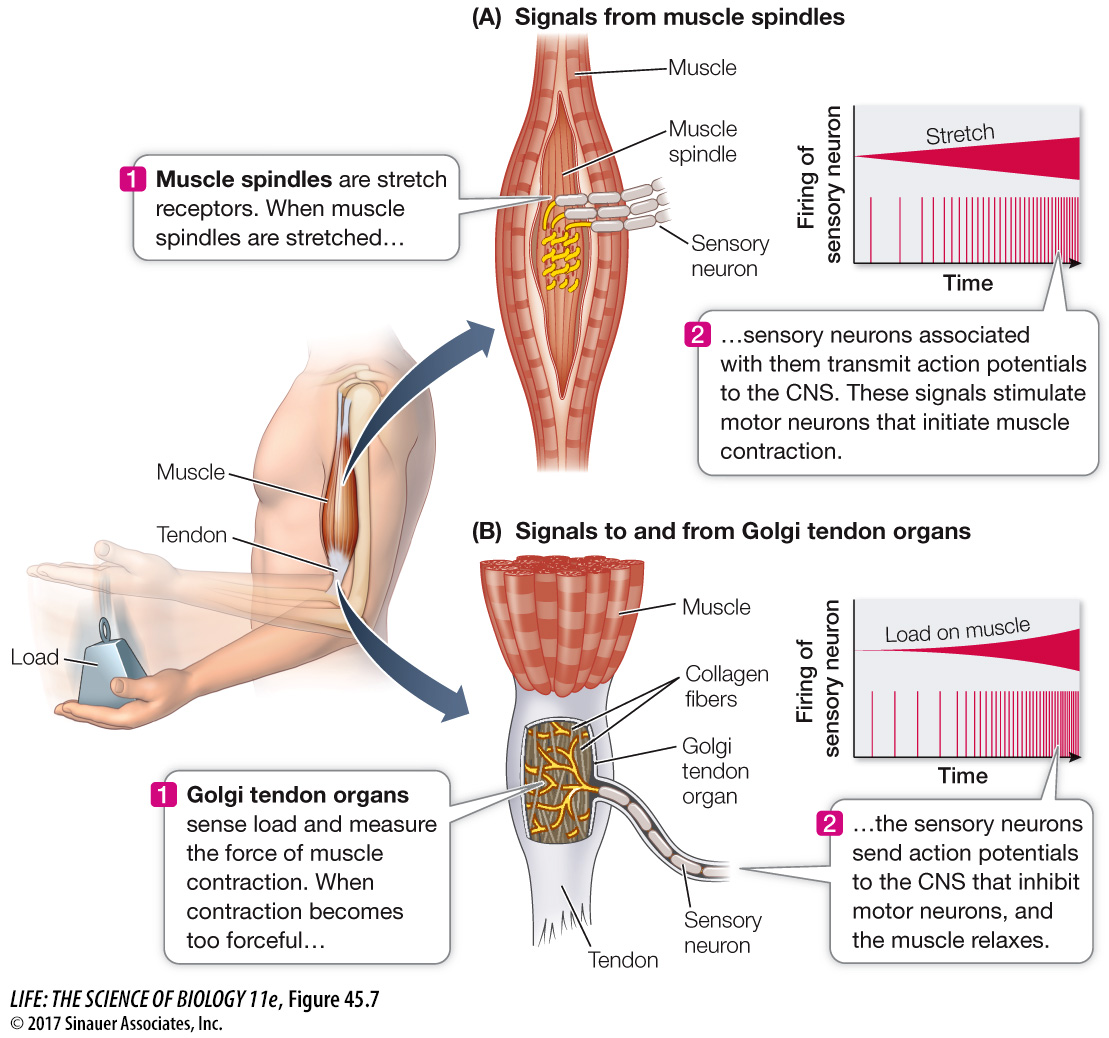Mechanoreceptors are also found in muscles, tendons, and ligaments
968
An animal receives information from mechanoreceptors about the position of its limbs and the stresses on its muscles and joints. These mechanoreceptors supply information continuously to the CNS, and this information is essential for postural control and the coordination of movements.
The mechanoreceptors in skeletal muscle are the muscle spindles. These stretch receptors are modified muscle cells embedded in connective tissue inside muscles and innervated by sensory neurons (Figure 45.7A). When a muscle is stretched, the muscle spindles are stretched as well, signaling the spindle neurons to transmit action potentials to the CNS. Figure 45.1 showed how crayfish stretch receptors transduce physical force into action potentials; the actions of muscle spindles are similar. The CNS uses the information from muscle spindles to adjust the strength of the muscle contraction so that it matches the load put on the muscle; thus a person can hold a mug steady while it is being filled.

Another type of mechanoreceptor, the Golgi tendon organ, is found in tendons and ligaments and provides information about the force generated by a contracting muscle (Figure 45.7B). When a contraction becomes too forceful, action potentials from the Golgi tendon organ inhibit the spinal cord motor neurons innervating that muscle, causing the muscle to relax and protecting it from tearing. (You may recall a cell organelle called the Golgi apparatus. What these two very different structures have in common is their discovery in the late nineteenth century by the Italian anatomist Camillo Golgi.)